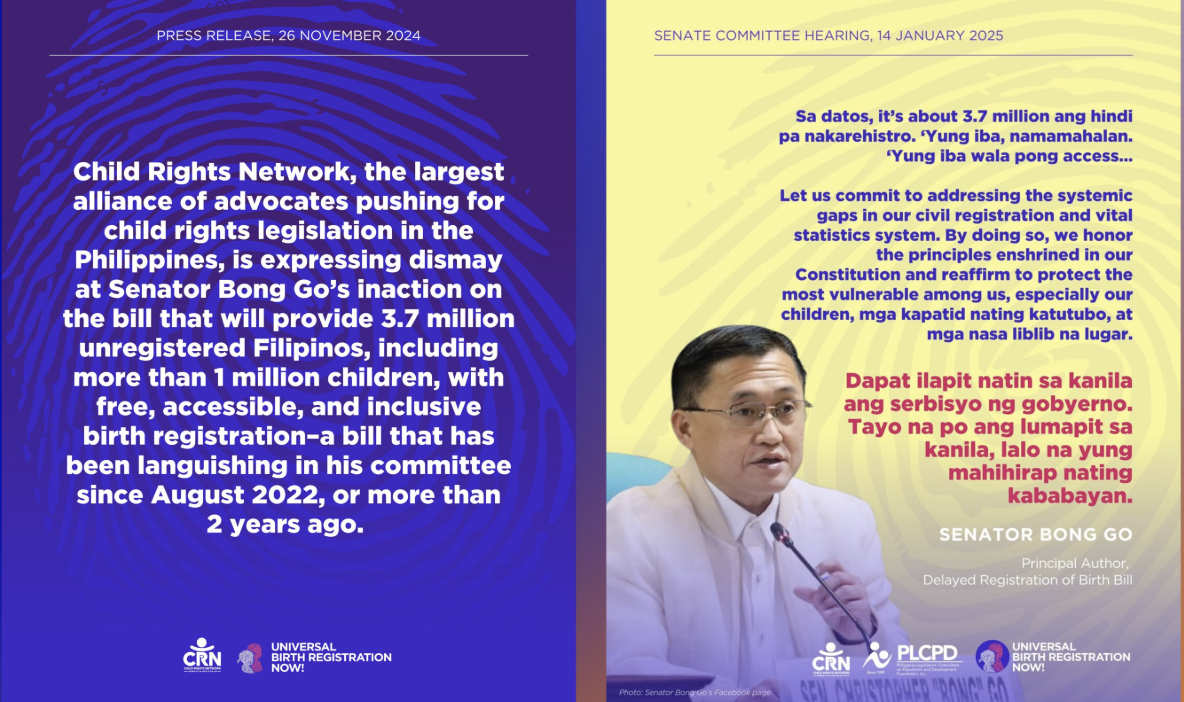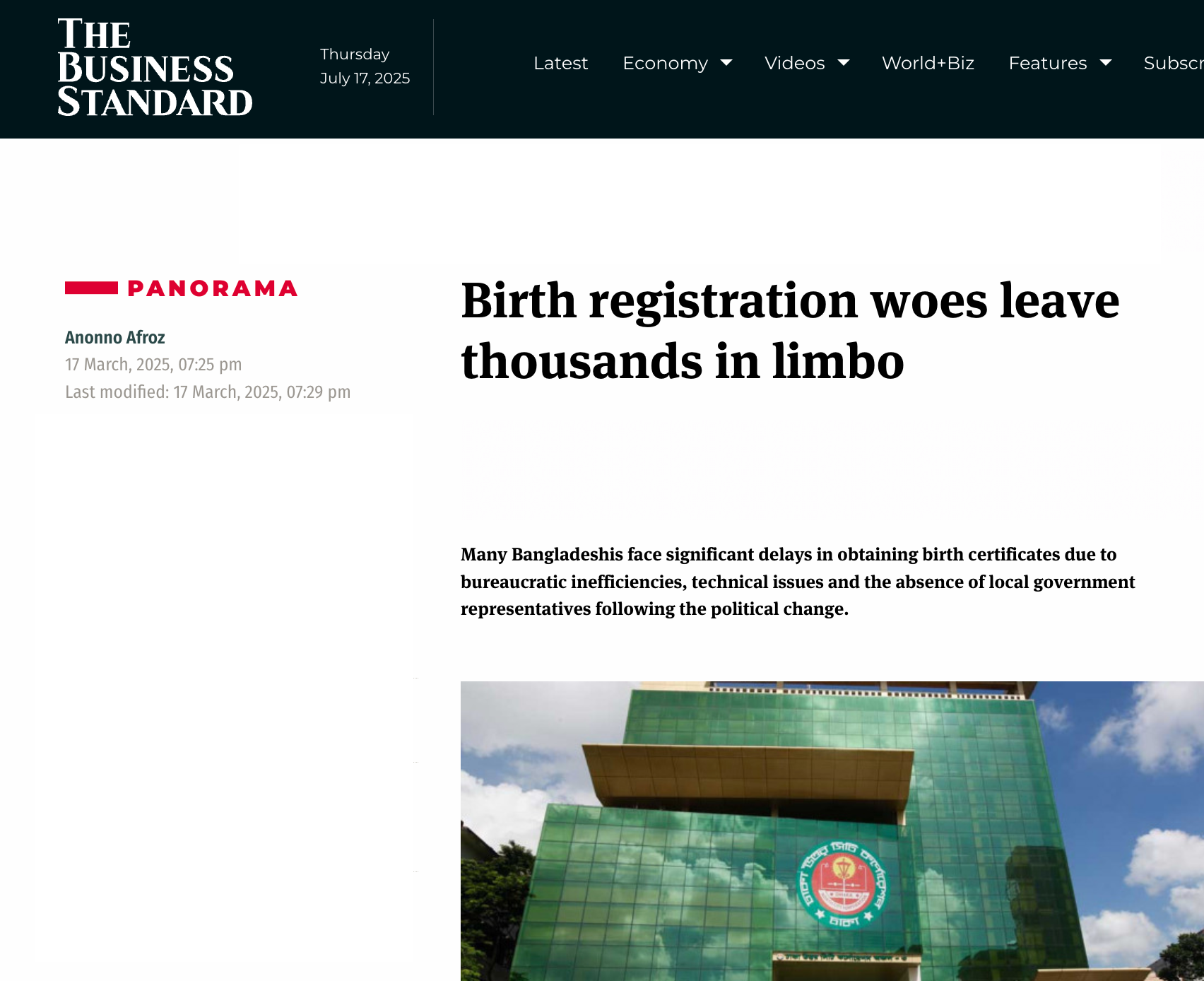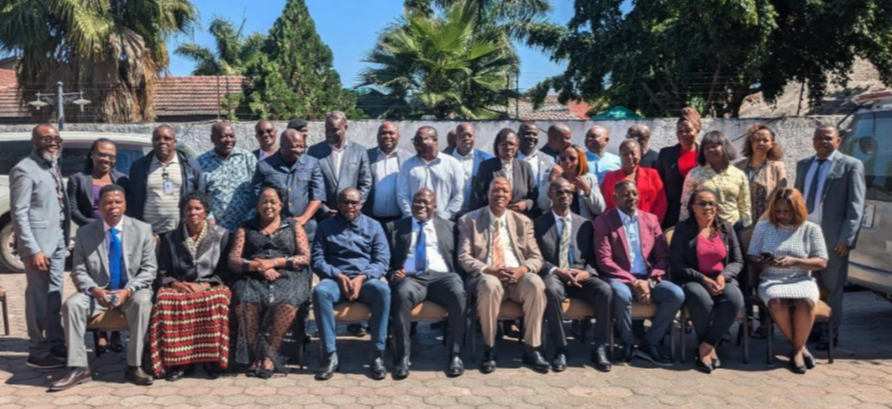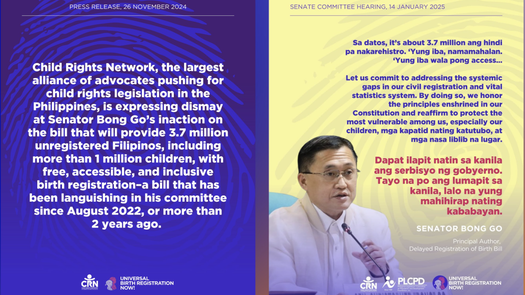July 29, 2025
July 29, 2025
Changing Minds, Changing Laws: How Media Advocacy Can Drive Civil Registration and Vital Statistics
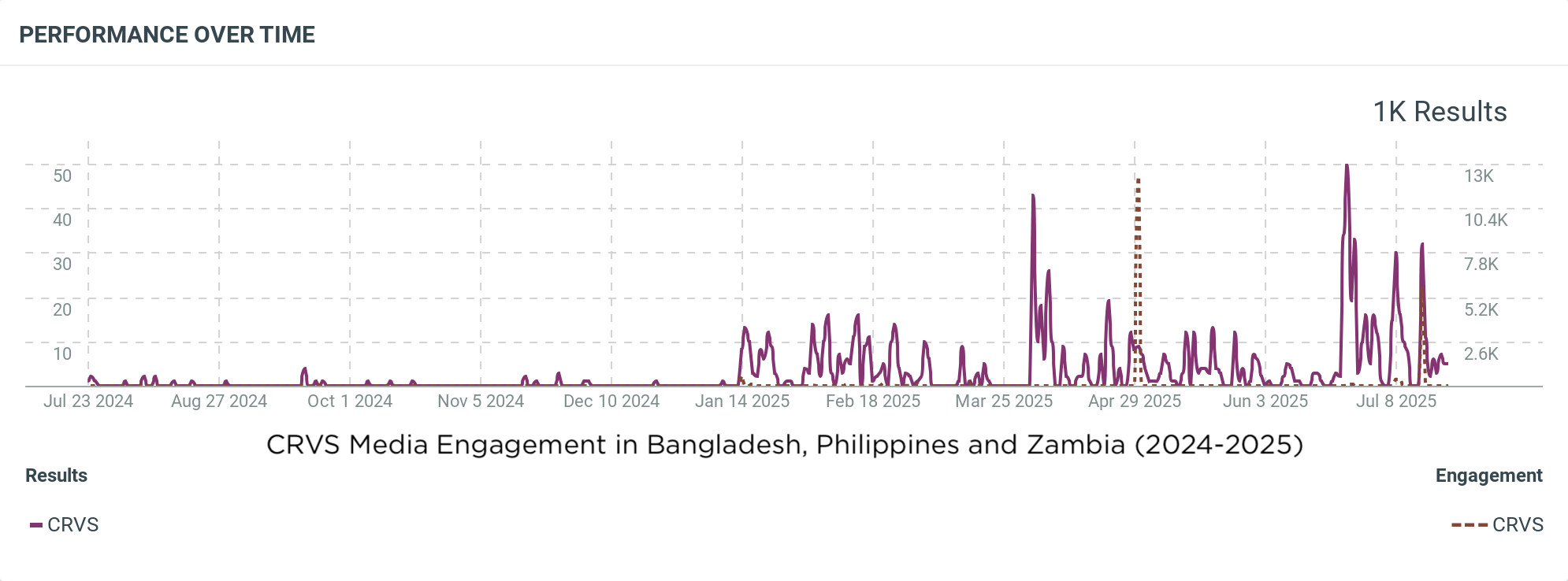
Strategic media advocacy and the right messaging can shape political will on crucial public health issues, including important topics that could be seen as technical and bureaucratic — such as Civil Registration and Vital Statistics (CRVS). CRVS, which includes registration of all births, deaths and causes of death, is indispensable for individuals throughout their lives as well as for governments who need accurate information to support thriving societies. However, it doesn’t usually receive political attention.
Media advocacy can change that, helping to raise awareness and put CRVS, and other health priorities, on the political agenda — from encouraging a parliamentarian’s support for a bill through a Facebook post, to hosting a journalist workshop that ends in the creation of a parliamentary CRVS caucus to shaping a country’s narrative by creating a network of journalists who write accurately and impactfully about birth and death registrations,
In short, media advocacy can change minds, hearts and laws.Here are three recent examples from civil society organizations (CSOs) partnering with the Global Health Advocacy Incubator (GHAI) who are doing exactly that:
Philippines – How Social Media Moved a Parliamentarian to Action
In the Philippines, our CSO partner Philippine Legislators' Committee on Population and Development (PLCPD) developed a legislative advocacy campaign to push for the adoption of a modern, inclusive and comprehensive CRVS bill in Congress. They began with a clear understanding of their audience—analyzing lawmakers’ digital habits, messaging preferences and voting history. Their communication strategy combined compelling storytelling with human interest stories of children living without birth certificates, visualized data and targeted social media outreach to raise awareness about CRVS as a fundamental right linked to identity, social protection and improved government services.
After a year of stagnation in the Senate, PLCPD took their campaign public, calling out the chairperson of the Senate Committee on Health for delaying progress. A boosted Facebook post (pictured) reached the Senator directly via tagging, prompting him to engage, acknowledge the delay and agree to calendar the bill for a hearing on Human Rights Day. Although the bill did not ultimately pass, largely because of other priorities for Congress at the time, the campaign succeeded in mobilizing decision-maker engagement, earning widespread media coverage and identifying sustainable tactics to inform future advocacy, which can be used to maintain the political momentum for the passage of the Bill under the new Congress.

The social media post calling out the Chairperson Bangladesh – Building a Network of Trusted Journalists to drive public engagement
The advocacy campaign in Bangladesh with our CSO partner Nari Maitree focuses on amending the Birth and Death Registration Act, 2004, to recognize health facilities as primary informants of vital events (such as births and deaths)—which is essential, given that 70 percent of births occur in such settings. From early 2025, our partner ramped up engagement through national workshops, stakeholder dialogues and coordinated media outreach. Their communication framed CRVS not as a technical system, but as a matter of rights, inclusion and social equity—linking it to access to services like education and health.
A key tactic was developing a responsive network of journalists from leading outlets including The Daily Star, Prothom Alo and The Business Standard. Through targeted briefings and storytelling support, reporters published a series of high-impact stories connecting CRVS to digital innovation, indigenous rights and governance reform. These articles served not just as media coverage, but as tools of public education and policymaker pressure. Complemented by Facebook content that reached over 870,000 non-followers, the campaign’s media advocacy elevated CRVS in public discourse and attracted attention from government officials, fueling momentum for legislative and system reform.

Newspaper article in Bangladesh from a journalist in Nari Maitree's network Zambia – Journalist Workshop catalyzing a Parliamentary CRVS Caucus
In May 2025, Zambia hosted a pivotal Media and Stakeholder Engagement Meeting on CRVS which included a full day journalism workshop, organized by our CSO partner Maternal Health Action Zambia (MHAZ). The event gathered Members of Parliament, journalists, CSOs, experts and government ministries to promote sustainable financing and cross-sector coordination for CRVS. Journalists were positioned as catalysts of change—equipped to raise public awareness and shape political priorities through impactful storytelling.
The meeting led to a significant advocacy win: Members of Parliament called for the formation of a CRVS Parliamentary Caucus to prioritize CRVS in national budgets and ensure oversight on programming. In addition, the Ministry of Finance emphasized internal prioritization of resources towards CRVS, and media coverage to elevate CRVS as a national development issue. The event’s success reflected the strategic value of media engagement as both an entry point for public discourse and a lever for institutional reform. Following the meeting, the CRVS Parliamentary Caucus is expected to be launched in August 2025.

Attendees at the Media and Stakeholder Engagement Meeting in Zambia Media advocacy works—whether it’s shifting a senator’s stance through a viral post, spotlighting the foundational nature of CRVS or laying the groundwork for parliamentary oversight. By supporting civil society with communications strategies and resources and building strong journalist alliances, GHAI and its partners are demonstrating how media can drive lasting change in civil registration systems.
This media advocacy work is part of GHAI’s Data for Health team’s wider CSO advocacy strategy, supporting and funding local advocacy organizations to build political and public demand for stronger CRVS and ID systems – all with a global team of in-country experts.

